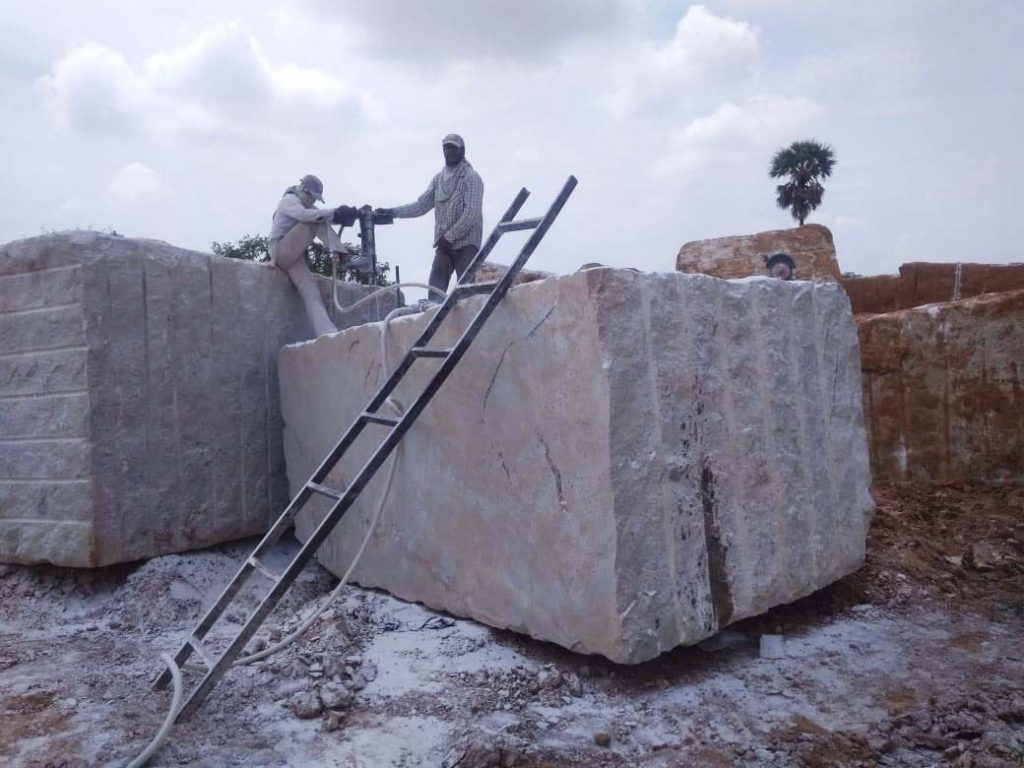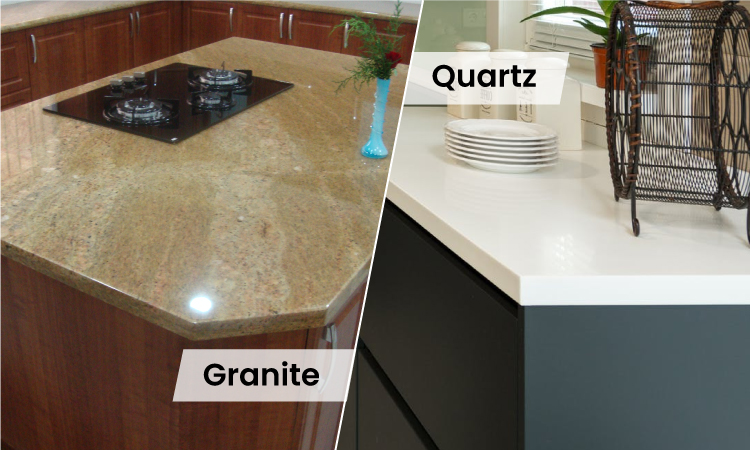Blog
Granite Stone – A Natural or Artificial Product?
Granite consistently ranks well when it comes to selecting a countertop material that skillfully combines durability with visual attractiveness. Granite countertops are a popular choice in interior design because of their rich patterns, sturdy construction, and classic beauty. But when people talk about this beautiful material, one issue that comes up frequently is: Is granite a natural stone or is it man-made? We’ll solve the puzzles related to the development and origins of granite in this blog post.
The Origin of Granite

In its most basic form, granite is a naturally occurring stone that is formed deep within the ground. It is an igneous rock, which in the language of geology means that lava or magma cooled and solidified to make it. Large crystals can form as a result of the gradual cooling that occurs beneath the Earth’s surface over countless millennia, giving granite its distinctively granular texture.Quartz, feldspar, and mica are among the palette of minerals that are essential to the sculpting of granite; they all contribute to its color, toughness, and strength. There are granite deposits all throughout the world, from the colorful landscapes of Brazil to the mineral-rich regions of India. The granite in each of these locations has a distinct color.
The Development of Artificial Stones
The astute observer may wonder about the abundance of granite options on the market, some of which exhibit a uniformity and consistency of pattern that is not typical of natural stones. This discovery introduces us to the world of engineered stone, a man-made substance that, because of its similarities in look and characteristics to natural granite, is frequently discussed in the same contexts. Engineered stone, sometimes known as quartz in the industry, is created by mixing a mixture of resins, pigments, and other elements with about 90% real quartz crystals. After that, the mixture is molded and put through a vibro-compression vacuuming process, which produces slabs with a look similar to granite but with a distinct set of useful characteristics, such non-porosity and a more consistent appearance. Check out this blog post from ours to learn more about the distinctions between quartz and granite.

Authenticity vs. Uniformity
Both engineered granite and natural granite have benefits and aesthetic qualities of their own. Natural granite is prized for its genuine, unmatched beauty. Each slab offers a different mineral mosaic, making an installation that is genuinely one-of-a-kind. With the knowledge that no two granite surfaces are alike, designers and homeowners can own a piece of the earth’s history thanks to the variations in color, pattern, and texture found in each piece. Conversely, engineered stone presents a choice where the result can be more reliably matched to your design goals if uniformity, consistency, and certain aesthetic needs are on your list.
Adding stone pieces to any area adds a sense of refinement and timeless appeal, whether of your preference for the controlled beauty of engineered stone or the organic allure of natural granite. With their own histories and qualities, these materials provide a wide range of options for designing elegant and useful rooms.
At Regatta Granites India, we honor the beauty of both naturally occurring and engineered stones. We help our buyers understand the subtleties of each stone product so that their ideas can be skillfully and elegantly realized. Together, we can explore the countless ways to shape your architectural projects using the strength and beauty of granite, creating a design that will never fade or cease to amaze. For additional information and a free consultation on importing the stone for your granite countertops, get in touch with our staff.
